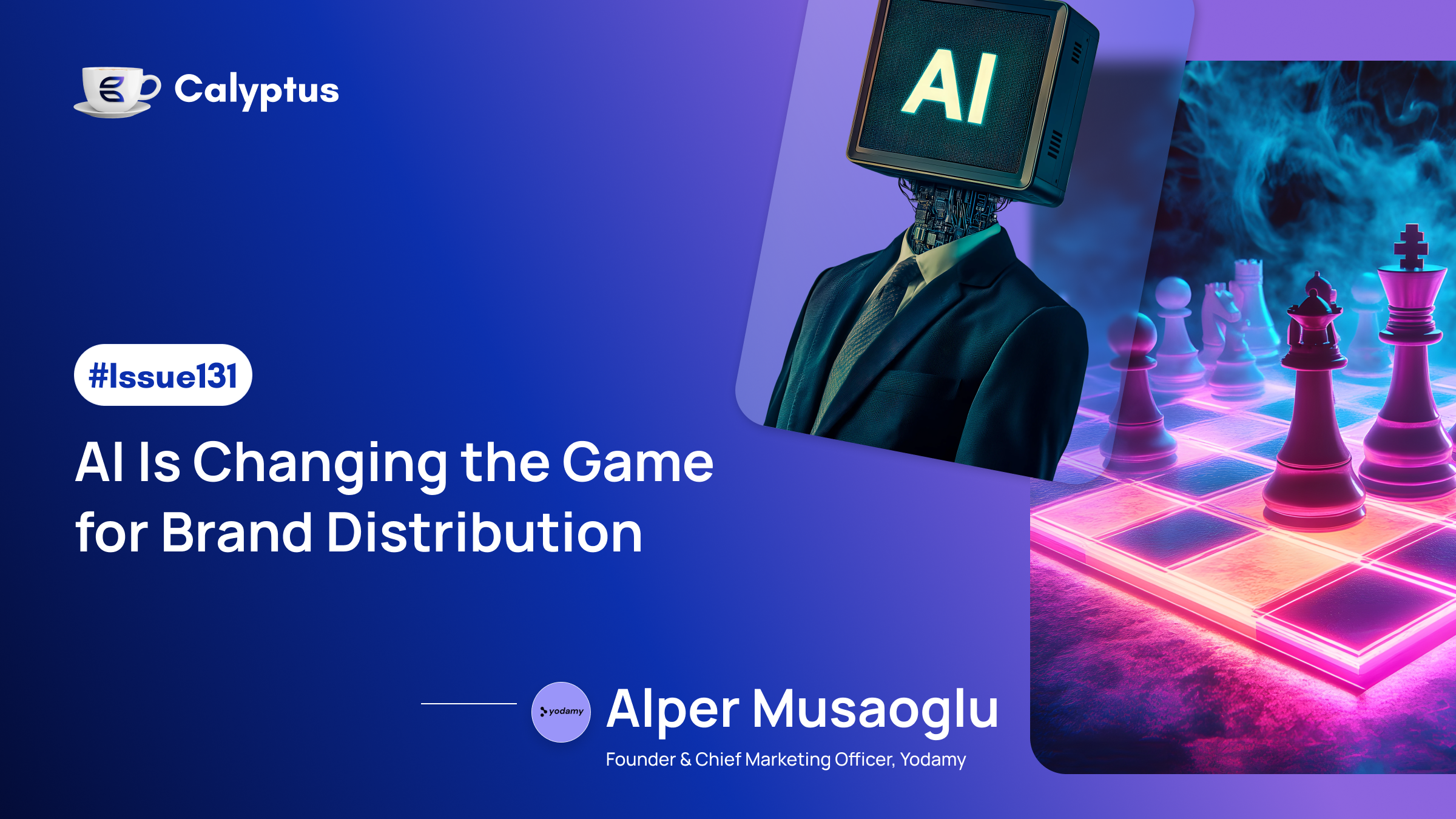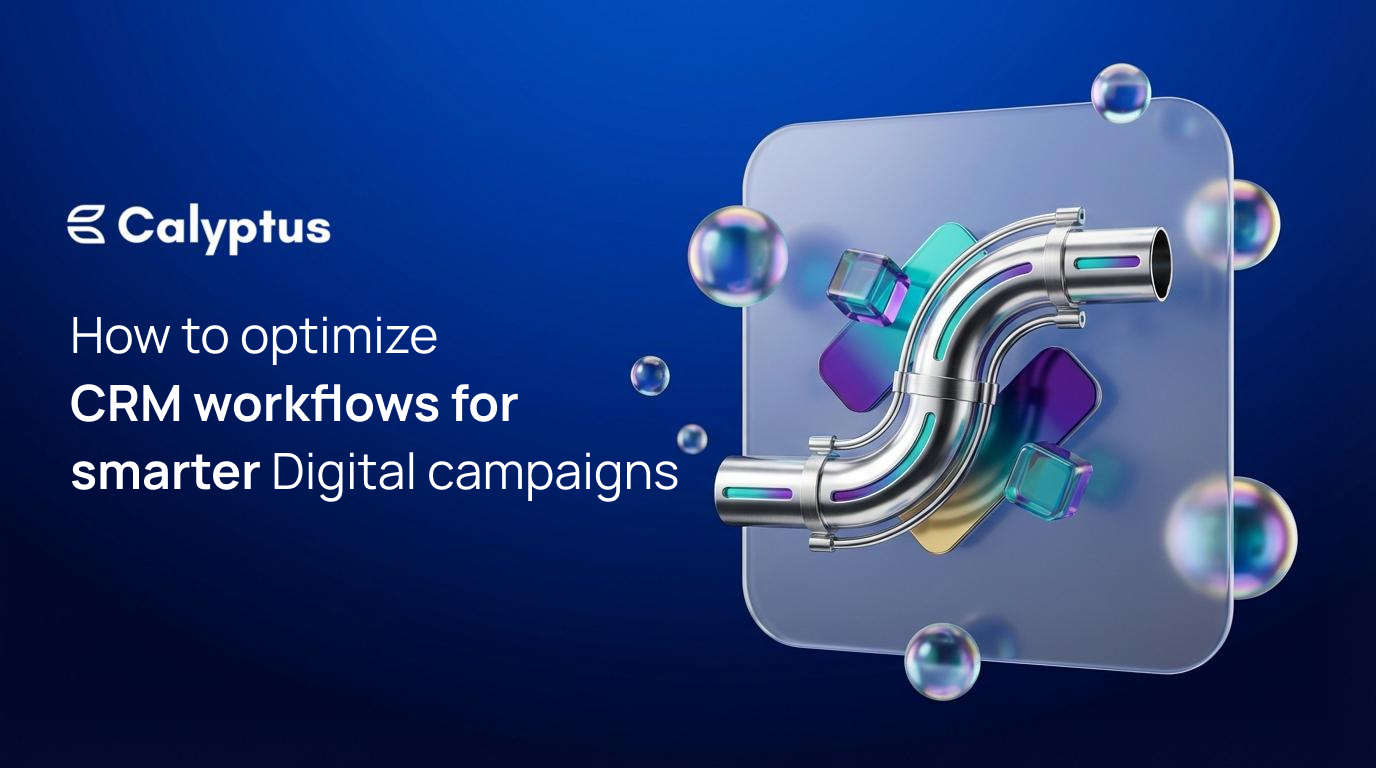This week on Coffee with Calyptus, we sit down with Alper Musaoglu, serial entrepreneur and founder of Optiqo.ai, whose work at the intersection of startups, AI, and marketing is reshaping how brands grow. In this conversation, he shares the key lessons that shaped his approach to scaling, speed, experimentation, distribution, and personality and reveals how AI is rewriting the rules of marketing.

You've built several successful companies and led innovative marketing strategies. What key lessons have shaped your approach to scaling businesses?
Over the years, a few key lessons have really shaped how I approach scaling businesses.
First, speed. In the world of tech and startups, you’re always racing against time, and other companies. The faster you can think, build, and launch, the better your chances. Momentum compounds.
Second, distribution. Building great products has never been easier thanks to AI, but getting attention has never been harder. The companies that win are the ones that crack distribution, they know exactly where their customers are and how to reach them. Often, finding just one or two channels that really click can change everything.
Third, experimentation. You rarely get things right on the first try, so it’s critical to test different channels, audiences, and messages as fast as possible. Let the data guide you. Double down on what’s working and kill what’s not. It sounds simple, but most startups struggle with the discipline to do it consistently.
And finally, personality. Most companies sound the same. The ones that stand out are the ones that feel human, who tell stories, share opinions, and connect personally across channels. In the social era, personality is distribution.
From your experience at Konvi to Yodamy, how do you think AI is transforming the marketing landscape, and what excites you most about its potential in the next few years?
It’s honestly one of the most exciting times to be a marketer. AI is completely transforming how we think about distribution and workflow.
If you look at the history of distribution. It started on the web, then moved to mobile, then to social and now we’re entering the AI-native era of distribution. Brands are starting to get visibility and clicks directly inside chat interfaces like ChatGPT, Claude, Gemini, and Perplexity. That shift opens up an entirely new world of opportunities. We’re moving toward a “zero-click world,” where people search and discover brands directly inside AI tools instead of Google.
I’m personally so fascinated by this that I’m building a new tool, Optiqo.ai for marketers, that helps brands understand how visible they are inside these AI systems and how they can improve their ranking and positioning compared to competitors.
The second big shift is in creative production. What used to require large budgets and big teams can now be done with a single prompt. You can generate visuals, videos, or entire ad campaigns instantly. That means small teams can now compete with big brands, and it’s completely changing how we approach organic and paid content.
And finally, AI is transforming how we work as marketers. If you know what you want, you can create, analyze, and iterate much faster than ever before. Many repetitive or manual tasks can now be automated so a single AI-powered marketer can operate like a small marketing team. That level of leverage is what excites me the most about the next few years.
You’ve helped raise funding and grow startups from the ground up. What challenges did you face when raising venture capital, and how did you overcome them?
I was one of the lucky founders who managed to raise capital relatively quickly our first few meetings turned into our initial round. But looking back, I think the reason it worked wasn’t luck; it was clarity. Investors need to believe two things: that the problem you’re solving is big, and that you’re the right team to solve it.
They also look closely at your path to market and scale, whether you have a clear strategy to grow and turn that problem-solving into a viable business.
One of the most important lessons I’ve learned is that, as building products becomes easier, traction becomes the real differentiator. You don’t need to wait for funding to start, build a simple MVP, find one or two marketing channels that work, get your first customers, and generate early revenue.
When you show that kind of momentum, it sends a powerful signal. It tells investors you can move fast, validate your assumptions, and make progress without relying on external capital. That’s what separates startups that raise easily from those that struggle. It’s proof, not pitch.
Balancing AI-powered strategies with hands-on execution seems to be central to your work. How do you manage the tension between automation and maintaining a human touch in customer interactions?
The internet is already flooded with low-effort, AI-generated marketing, from generic comments to copy-paste content. If you let AI run everything, it all starts to sound the same. The real difference comes when you use AI intentionally, not blindly when you know the outcome you want, aim for originality, and focus on delivering genuine value.
Every day, new tools are emerging, and what they can do is incredible. I’m constantly learning, experimenting, and testing how these tools can improve our output. But at the same time, maintaining a human touch is non-negotiable. Your brand voice, tone, and perspective are the things that make you stand out.
I think this balance will be one of the biggest challenges marketers face over the next five years. The key is to use AI to amplify your creativity and reach, not replace it. Keep your brand human, and let AI handle the heavy lifting around it.
In your opinion, what’s the biggest misconception about the AI and automation space, and how can companies best navigate this rapidly evolving technology?
I don’t think AI will replace marketers, at least not today. What it really does is give superpowers to marketers who know how to automate manual tasks, scale content production, analyze data, and make smarter decisions. But the human touch still matters, the real skill is knowing how to orchestrate all these tools to create something meaningful and original.
Companies also need dedicated systems or teams focused on testing new AI tools as they come to market. That constant experimentation is what makes marketing teams more efficient and helps them multiply their impact.
My biggest advice is to find curious marketers, people who love to learn, test, and apply AI in their daily work. This has been one of my biggest passions in the past few years; I dedicate time every week just to explore new tools. And if you’re a founder, operator, or marketer feeling overwhelmed by AI, I’m always happy to connect and share ideas.
We hope you enjoyed this edition of Coffee with Calyptus. Stay curious, stay inspired, and keep building what matters. Explore more editions and insightful articles at




